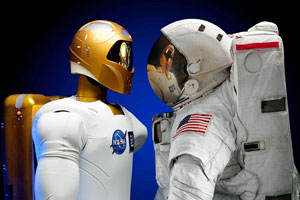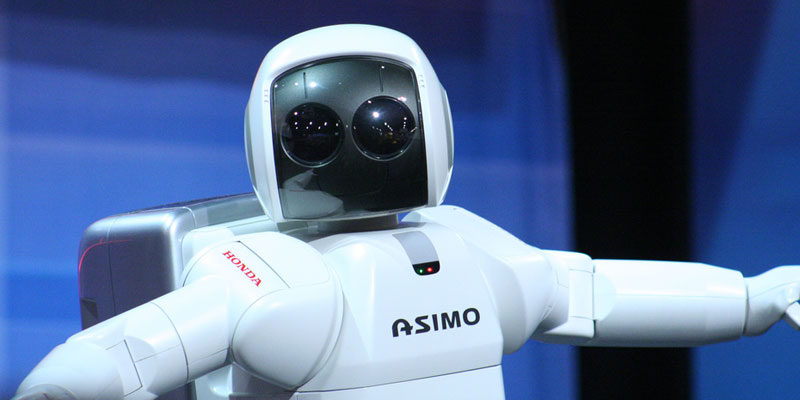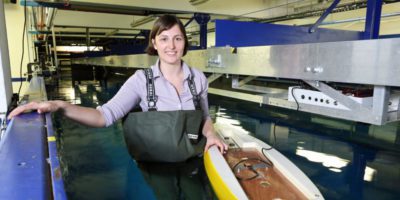Dr. Natasha McCarthy is Head of Policy at the British Academy, leading a team that uses research from the humanities and social sciences to address policy challenges. Natasha was previously Director of Education at UCL’s Department of Science, Technology, Engineering and Public Policy, and prior to that Head of Policy at the Royal Academy of Engineering. She has produced reports on topics such as privacy and data collection, resilience to climate change, the emergence of autonomous systems and the ethical challenges facing practising engineers.

As part of UK Robotics Week 2016, the Royal Academy of Engineering is hosting a panel event that seeks to address ethical questions relating to robotics and autonomous systems. It will focus on questions such as “does existing legislation guard against threats and risks?”, “do we need ‘robot law’?” and “who should be in charge of establishing new laws and guidelines?”
How the sciences, technology and engineering shape society
My background is in philosophy of science and I have a strong interest in the ways that the sciences, technology and engineering shape and are shaped by society. From a Ph.D. in philosophy that looked that the relationships between scientific languages and everyday speech, I moved into science and engineering policy, applying my research to the ways that we can connect research and technical practice to policymaking.
I have worked on projects that range from adapting socially-critical infrastructure systems t0 climate change to understanding how best to support interdisciplinary systems. But I have returned to the topic of autonomy and autonomous systems a number of times. I think this is a fascinating area where social norms and cultural expectations are particularly sensitive to, and relevant for, technology development.
Working at the British Academy: Exceptionally broad-ranging
In my current role I get involved in a wide range of policy areas where social science and humanities research can enlighten complex policy questions. This involvement can be through developing reports that represent thought leadership on a current topic, by bringing academics and policymakers together in roundtable discussions, or responding swiftly to emerging political issues.
Current topics I have been working on include cultural influences on the uptake of locally, community-owned energy generation projects, devolution of power within England and the future of public service broadcasting. It’s exceptionally broad-ranging!
Ethical questions in robotics and autonomous systems

I’ll be contributing as part of a panel that also includes roboticists, science communicators and a legal expert to discuss whether we need a set of robot laws and guidelines, and who should be in charge of establishing them.
Innovations on the horizon in robotics
I am very interested in the way that processes become automated – and potentially autonomous – little by little. Take services like Uber and Deliveroo. They are still services involving people, but with certain person-person interactions taken out in favour of using apps and data-driven systems to ensure a swift and tailored service. They are interesting because thinking about these processes is quite different to thinking about a physical robot doing a task for us, and hence we might not reflect on where they are taking us.
I think there will be much more blending of automation into services in the future and it is valuable to think about the benefits of that, but also where it might lead in the future.
Implications for policy makers as technology evolves
A challenge for policy relating to swift moving technology is designing policy based on sound principles that remain valid through a certain degree of technology change. Policy cannot always be ahead of, or in pace with, technology change. Rather it has to provide sound frameworks that allow technology to develop and change but which make clear when technology change requires more scrutiny and debate.
Another challenge is of course being aware of where societal concerns may arise and being ready to apply these frameworks effectively, always with engagement and consultation.
Science, engineering and research policy: Making links between disciplines
I find it interesting that there is a shortage of women in STEM, though in science, engineering and research policy, there appears to be a higher proportion of women involved. I think there is an answer in this observation. If we convey early on just how relevant STEM can be to public life, to how we will live in the future, and to critical needs such as food, water and power, we can attract a broader range of students who have interests in humanities and social science subjects alongside STEM subjects.
I have always been very interdisciplinary, and I think that making links between disciplines can bring all of those disciplines to life for more students at all levels of education, and give them a wider range of career paths.
Important issues at the society-technology interface
I will shortly be moving to the Royal Society, where I will be working on issues that cover data use and machine learning. This really appeals to my interests and reflects the topic of this event! There are really important issues at the society-technology interface in this area and I very much look forward to engaging with them more.
Learn more about the event here.
https://twitter.com/britac_news
https://twitter.com/ntshmccrthy
https://twitter.com/ukroboticsweek
Robot image credit: CC BY-SA 2.0, https://commons.wikimedia.org/w/index.php?curid=770764 http://www.flickr.com/photos/38074672@N00/83278753/in





